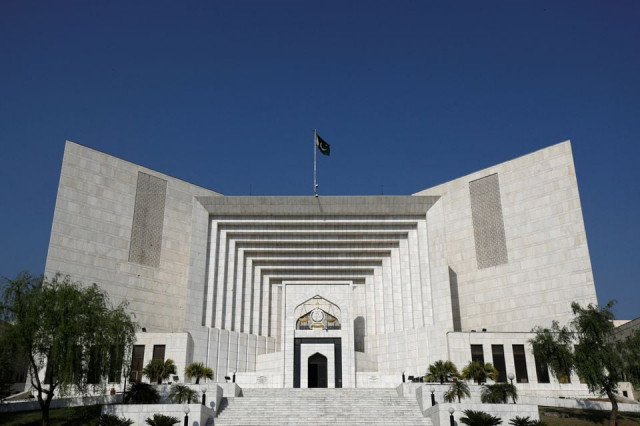High courts have ‘no suo motu jurisdiction’
SC sets aside PHC verdict on forming bodies to review commodities’ prices

The Supreme Court has ruled that the high courts have no suo motu jurisdiction under Article 199 of the Constitution, as it set aside the judgment of the Peshawar High Court (PHC) which had given directions for forming a committee to review prices.
In an eight-page judgment, authored by Justice Ijazul Ahsan, the court said that the high court could not devise a formula for pricing as it went against the principle of trichotomy of powers envisaged under the Constitution.
“It is settled law that the High Court does not have suo motu jurisdiction under Article 199 of the Constitution of the Islamic Republic of Pakistan (the Constitution) as compared to this Court which has been conferred exclusive jurisdiction in the matter by the Constitution in terms of Article 184(3)”, it said.
The PHC had directed that a committee should be formed to review prices of livestock and poultry products and that officials of the government ought to make regular visits to the market to ensure that adulterated milk and other items which were not consumable had not been sold in the market.
Read more:
Heading a division bench of the apex court, Justice Ahsan noted that the prayer of the private respondents was essentially limited to the pricing of products but the high court “passed a series of suo rnotu orders” on February 25, 2021 and July 1, 2021.
The court said that the PHC in its orders had imposed a ban on the export of dairy and poultry products. It noted that banning imports or exports of products was not the domain of the courts but fell under the exclusive domain of the executive.
“The learned High Court could not have transgressed its jurisdiction under Article 199 of the Constitution by passing an order which not only amounts to exercise of suo motu jurisdiction, but also an encroachment on the jurisdiction of the executive,” the judgment said.
“The learned High Court has not cited any law or precedent on the basis of which it exercised suo motu jurisdiction,” the judgment continued. “The only course of action available to it, if necessary, was to direct the Government to do what it is required to do under the law in case its officials /functionaries were not doing that,” it added.
“The act of issuing directions with respect to an issue or dispute which was not before the High Court constitutes overstepping jurisdictional limits which cannot be countenanced, it said, adding: “The impugned order not only goes against the mandate of Article 199 but is also against settled principles of law.
As such, the judgment said, the PHC could not have provided a formula for the calculation of prices nor could it direct that a pricing committee be formed to implement the formula provided by the high court. “These matters clearly relate to the executive and ought to be left to the policy makers to regulate.”
The court also noted that import and export were a federal subject and the power to prohibit or restrict imports and exports vested with the federal government. “As such, directing the Provincial Government to do so did not have any legal or constitutional basis or sanction behind it,” it added.
The apex court also noted that in case of any violation of an order for restricting or prohibiting imports or exports, the jurisdiction to adjudge the matter would exclusively vest with a commercial court and hence, the high court, while acting under Article 199, “cannot be termed as a Commercial Court”.
“We are of the view that the learned High Court has incorrectly applied the law. There are patent jurisdictional errors in the impugned order which warrant interference. The Learned Additional AG KP has been unable to persuade us to endorse the view taken by the High Court,” the judgment added.


















COMMENTS
Comments are moderated and generally will be posted if they are on-topic and not abusive.
For more information, please see our Comments FAQ